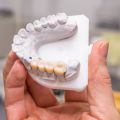7 Reasons Why You Might Have a Bad Breath

Dealing with bad breath may be a stressful experience for both the person who has it and the person who is communicating with them. Today, about a quarter of the population suffers from bad breath. Understanding the reasons for bad breath will help you in solving this problem. We'll be pleased to help you deal with it and keep your breath as fresh as possible.
Continue reading to discover the seven reasons why you might have a bad breath.
1. Tobacco smoke
Tobacco usage is one of the most common causes of bad breath in most people. In the United States, about 14% of adults smoke cigarettes. Tobacco smoke harms your oral health and causes long-term damage. The smell of tobacco alone sticks on your breath for long enough to become irritating to anyone with whom you speak. Among the multiple adverse medical issues that come with smoking, bad breath is one of the most critical reasons to quit.
2. Coffee, alcohol, and other harmful drinks
One of the most effective treatments for bad breath is to avoid or limit certain liquids, such as coffee and alcoholic beverages. Coffee has strong dehydrating properties. It causes your mouth to become stale and dry, resulting in chronic bad breath. Drinking alcohol has a similar effect. It dehydrates you and causes your mouth to become dry, making it difficult to produce saliva. Minimize these drinks as much as possible, especially if you don't drink enough water.
3. Oral infection or poor dental health
If you want to identify what causes your bad breath, pay attention to your overall dental health. It is important to maintain good oral hygiene and get regular checkups. During your dental examination, the dentist will check for cavities, plaque, periodontal disease, and infections. If you have a tooth that is decaying, having bad breath is inevitable.. Moreover, gum disease can also lead to bad breath. Gingivitis causes your gums to be sensitive to the touch, bleeding, and inflamed.
4. Certain medications
Some medicines may cause you to have bad breath. Decongestants, antihistamines, and a variety of antidepressants are among the drugs that trigger bad breath as a side effect. Before taking a pill , always analyze the potential side effects and look for ways to lessen them. If you're taking a medication that causes this negative effect, make sure to have a bottle of water nearby.
5. Food particles
Brushing and flossing are one of the most simple and commonly available bad breath cures. Food particles that remain between your teeth and in your gums feed bacteria that create bad breath. Even a simple rinse after a meal can significantly help in reducing this condition. After each meal, rinse the mouth with an antibacterial mouthwash to eliminate bad breath bacteria and get rid of any tiny food particles stuck in your teeth.
6. Halitosis
Halitosis affects about half of the population at some point. Halitosis is a term used to describe chronic bad breath caused by a range of factors. This problem usually develops when a deposit of plaque and bacteria forms on your teeth, causing bad breath. Halitosis can also irritate your gums and cause pain. Such diseases as a sinus infection and postnasal drip can cause bad breath too. Also, people who suffer from seasonal allergies are more likely to have bad breath.
7. Chronic dehydration
If you are desperate to figure out how to eliminate bad breath, check your water consumption. When you don't drink enough water each day, your mouth becomes dry and produces an insufficient amount of saliva. When this happens, your breath gets unpleasant and sour, especially if you continue to talk and eat without drinking. Drinking plenty of water will keep your mouth clean and prevent bacteria from accumulating.
Other articles and publications:
Articles and publications of other companies:
- +1 (646) 270-9836
- Long Island City
- grantny.com











